New Zealand is an incredible part of the world and in my opinion one of the best ways to see the country is by road, in a campervan. There are many reasons why this might be the case, but let’s assume you have already made the decision to hire a campervan.
I spent three weeks in May of last year driving around the South Island of New Zealand, and while I had an incredible time, had I known some of these things below, it would have made the trip a whole lot easier.
Read this list so you don’t make the same mistakes I did.
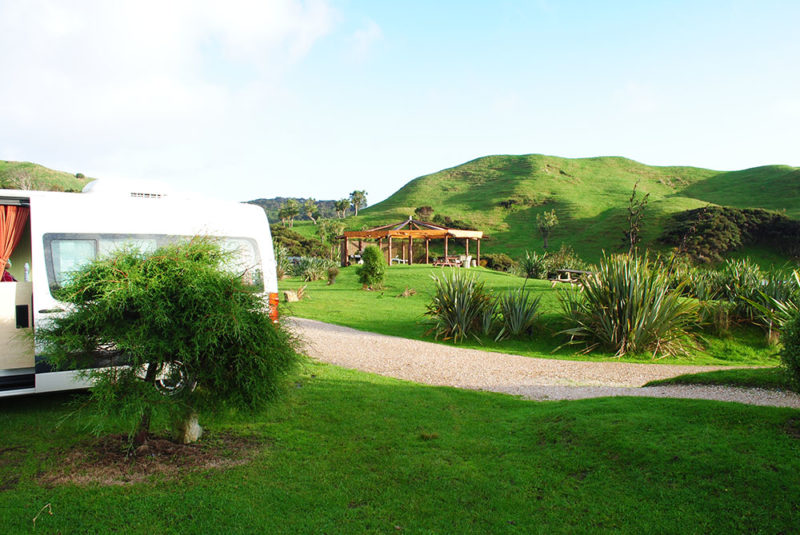
Get an extra duvet in winter
If going in winter (or spring or autumn), ask for an extra duvet. Once all the money is paid they are pretty keen to get you on the road, so for additional things like this they are unlikely to charge you for. This is especially true if they are busy or approaching closing time (and probably also applies to other little add-ons like table and chair, heater, etc).
Alternatively (or if you forget), you can always find a department store in a city and buy a cheap one. Then you can donate it to someone picking up their van as you return yours.
Think twice about the camping table and chair.
As I mentioned above, I went in May, and because it was pretty cold outside, we were happy enough to eat most of our meals inside the van. In the occasional time we did eat outside there were generally picnic tables at the campsite or RV park we stayed at. We literally did not use the chairs or table once.
You may be different to us and are going in summer and are planning on staying in really remote places where there will not be picnic tables. That’s fine and if that’s the case go for your life, just make sure you really will need them because they take up a fair bit of space.
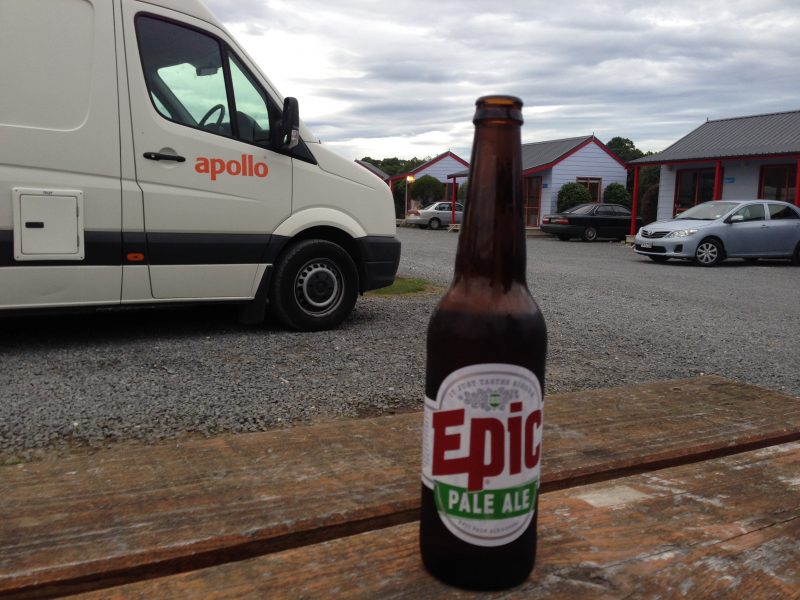
Buy a SIM card
Buy SIM card for your phone instead of renting a GPS with your van. The roads are well marked and even though your sim won’t have service everywhere, the places it won’t have reception are through the mountains where there is only one road anyway. And that one road is well signposted.
The bonus of having a SIM card is that you can then tether your tablet or laptop to it and research places on the go if you want to, and can call places ahead of time to make bookings. You will feel so much more self-reliant by doing this.
Most convenience stores in the cities will sell SIM cards and if you have a reasonably new iPhone, it should not be locked to any network so you can just plug and play (not sure about other brands sorry). If the store isn’t busy, ask the operator to set it up for you.
And having a phone to call the Apollo assistance line was helpful beyond measure as well.
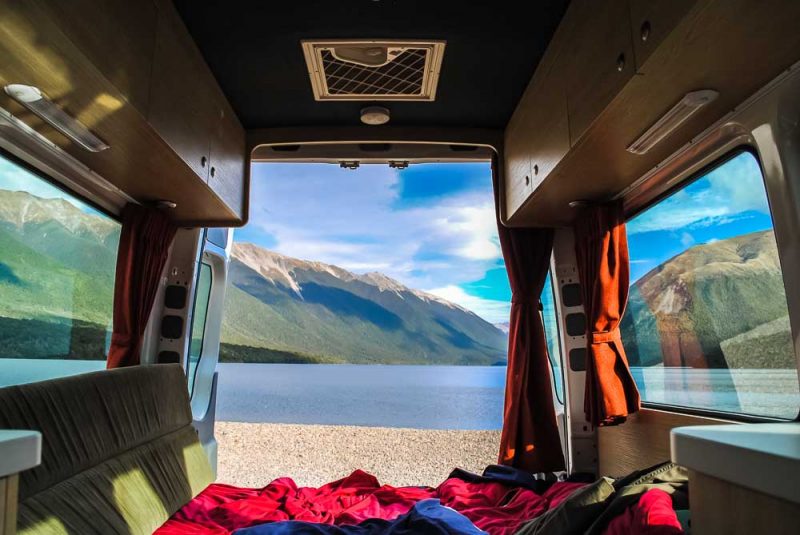
Don’t go with with Cheapa Campa if you can avoid it
We had a horrid experience with Cheapa Camper. So much so that I could probably write a dedicated article on why you shouldn’t go with with them.
But I won’t because that’d just be depressing.
The Cheapa vans are just old Apollo vans at the Apollo depot that should probably be retired, (there is actually no Cheapa branding on them at all). The vans are older and less reliable and although this shouldn’t be a problem in theory, we had a few problems with ours specifically because it was old. I was on the phone most days to Apollo trying to get them to book us in to have a mechanic look at it.

Thankfully we didn’t have to pay for any of this but it did take time out of our holiday to find mechanics to fix stuff.
They are not actually much cheaper than Apollo, the big difference is the bond you lay down is half (NZD$2500) of what you pay for for Apollo vans and most other providers (about NZD$5000), which is refunded on return.
To compare the rates on the 9 major campervan providers and more, check out Campervan Finder.
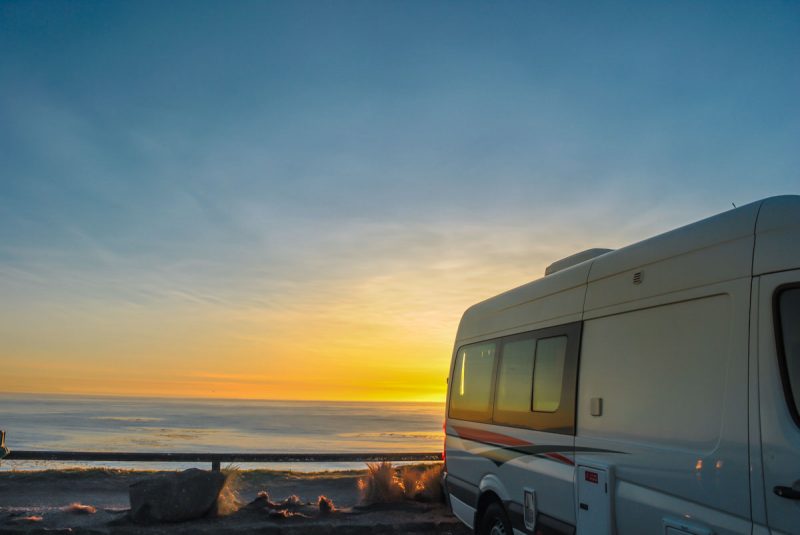
Make sure you take my New Zealand ebook with you
Ok shameless self plug but it’s true. I whipped together a free ebook on where to go if you have 3 weeks in a campervan. It’s just built with previous blog posts I have written, but its in a handy PDF format so you can take it with you. (It’s only for the South Island by the way). Click here to download.
Bring your own pillows
…or buy some on the road because the ones Apollo provided are very thin. You might even be able to ask for a couple of extras and stuff them together to make one improved pillow.
Fill a USB drive with movies/TV/music
Now this might sound like a lame recommendation, but in winter it gets very cold at night so unless you are lighting fires throughout the country (not sure if this is legal or not, probably allowed in some places) or hanging out in common areas in holiday parks, the evenings might tend drag on if you don’t have anything to do.
Of course, the same goes for books and games but this felt more obvious to me.
The reason I suggest a USB is that the TV in the campervan will most likely have a usb port, which you can just plug in your USB and away you go. This obviously saves space in carrying actual DVDs.
Don’t let the cold stop you
Your van will have gas and electric heating so If going in winter, don’t worry too much about being cold. We had one or both of these heaters running during the evenings and they made the van toasty and warm at all times.
Of course, don’t sleep with these on, but that’s why I said bring an extra duvet.
Check everything is working before you leave the lot
We spent 3 weeks without a working water pump because I didn’t know what to check was working before we left. The staff were also over-busy so they rushed us out without giving us any time. Things to check are in working order:
- The water pump and sink,
- The toilet and shower,
- Check the windscreen for cracks
- The TV
- The stove
- Fridge
- The power cable
- And anything else you can think of.
Make sure you get a diesel
In New Zealand unleaded petrol is incredibly expensive at around NZD$2.00 a litre (~NZD$7.40 a gallon). Whereas diesel was only about NZD$1.30 a litre. Now I’m the sure the prices have fluctuated since I was there but diesel always seemed to be cheaper (unlike in Australia) so I’m very glad our van was a diesel.
Never underestimate canned soup
Sometimes you’ll be in the middle of nowhere with nowhere to plug your power into and have little desire to do any real cooking and cleaning up. We had canned soup quite a lot on our trip because we just couldn’t be bothered cooking. It was so easy to just throw some in a saucepan and add some toast. Probably not the most nutritional, but it got the job done.
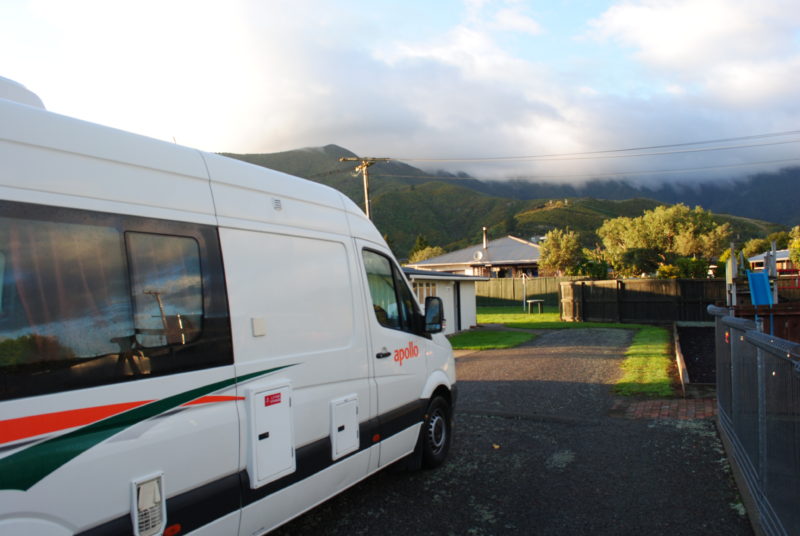
So these are the things I learnt from 3 weeks in a campervan. If you’re planning some time in New Zealand in a campervan, you’ll want to read my 3 week itinerary to give you an idea on what’s around and how long things will take. It will be helpful even if you are doing the North Island as well or planning a different length of time.
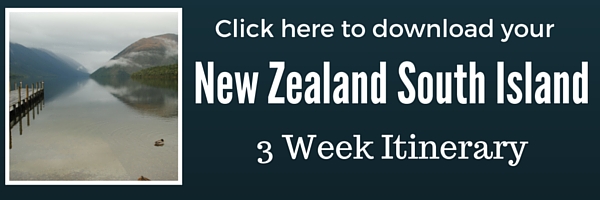
Like this? Pin it too?

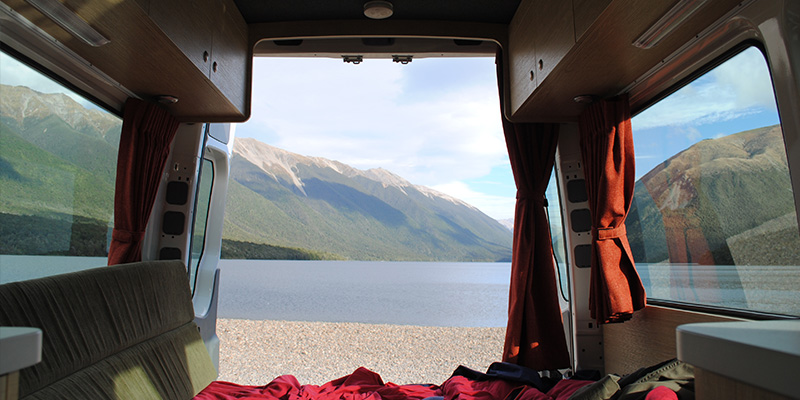
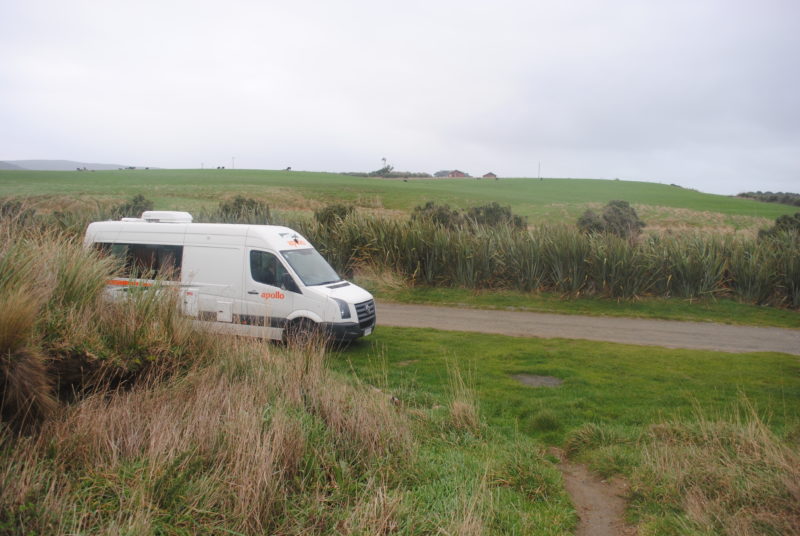
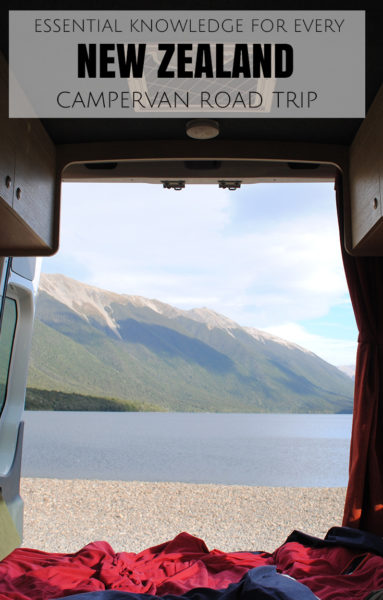
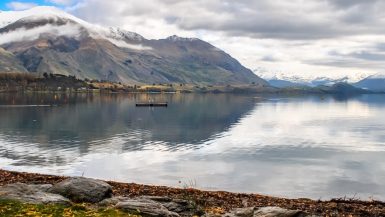
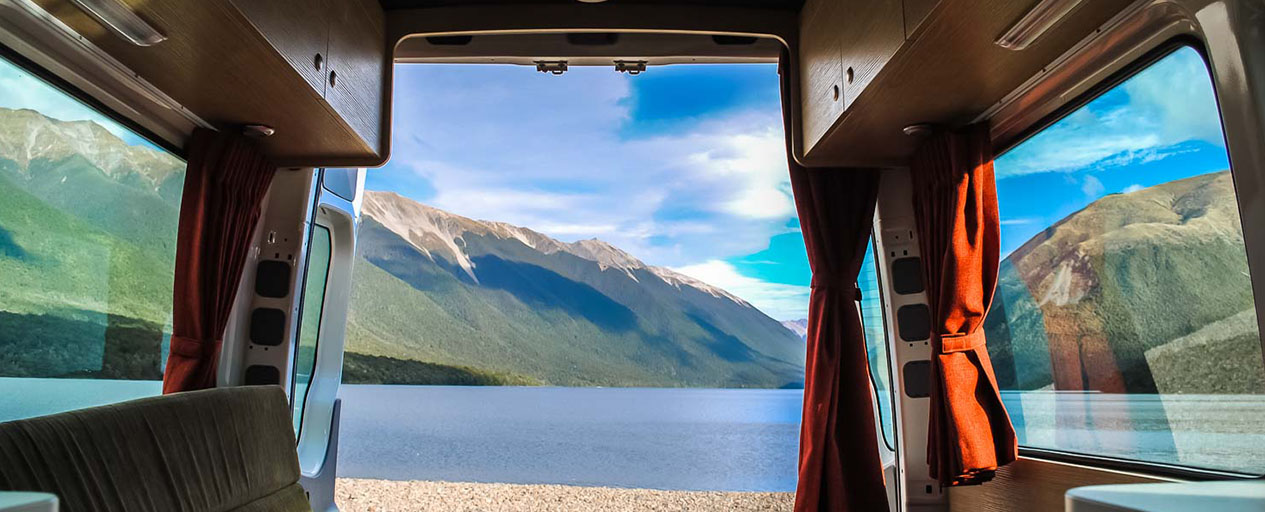
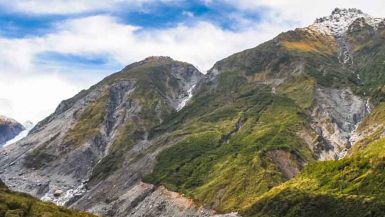
Hey! Great posts, I’m definitely using you as inspiration to take my Australian hubby around the South Island this winter. I have a question about the campervan using diesel, did you have to pay a tax at the end of your trip for the diesel/ on road costs ? We looked at campervans briefly and one website mention this extra cost so I’m not sure it’s worth it over the cost of petrol.
Hey Meilissa, I don’t recall having to pay a specific diesel tax. Actually I don’t recall having to pay anything additional at the end of the trip. However I suspect that most (if not all) of the campervans of this size would be diesel so if that’s what you’re tossing up, it probably becomes a question of size as much as a question of fuel type. Does that help?
Loved your tips. We used Jucy Campers and had a good experience.
Thank you for this post! Did you have a self-contained campervan? What would you recommand?
Yeah ours was self contained. They have to be if you want to freedom camp legally. I would definitely recommend it to. It we the best way to see the island.
If you’re heading there soon make sure you check out my other blog posts on NZ
Thanks Luke! We decided to go with a self contained as we want to do freedom camping! What was missing to us when we did a long trip in American with an RV…
Excellent post :) Thanks for going into detail.